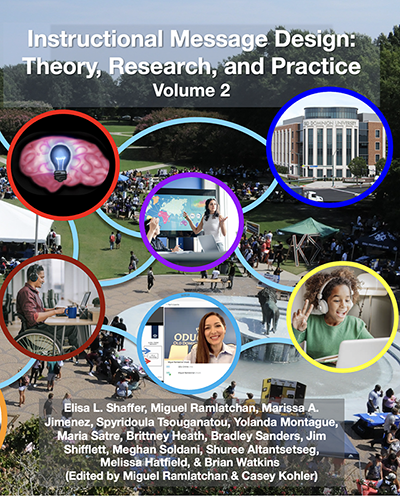
Instructional Message Design, Volume 2
ORCID
0000-0002-9266-1353 (Shifflett)
Document Type
Chapter
Publication Date
Fall 2022
DOI
10.25776/npmn-z447
Publication Title
Instructional Message Design: Theory, Research, and Practice (Volume 2)
Pages
40 pp.
Abstract
The popularity of video games with today’s learners requires that educators and instructional designers develop game literacy, or an understanding of game mechanics and design. The purpose of this chapter is to discuss game literacy within the context of instructional message design and to illustrate how video game designers apply and adapt principles of instructional message design to manage cognitive load through an immersive experience. These techniques include customizing the screen to display only necessary information and signaling changes in gameplay through sound cues and cinematic perspective. Game mechanics that foster germane load include tutorial missions and interface design. Similar to a narrative-driven video game, this chapter is divided into “quests” addressing cognitive load theory in video games. Completing each quest “unlocks” heuristics derived from both educational research and game design. The chapter concludes with a “Boss Battle” against research gaps and challenges, notably the expertise reversal effect in game-based learning.
Repository Citation
Shifflett, JIm, "Chapter 10: Game Literacy and Message Design" (2022). Instructional Message Design, Volume 2. 10.
https://digitalcommons.odu.edu/instructional_message_design_vol2/10
Included in
Educational Methods Commons, Educational Psychology Commons, Educational Technology Commons, Instructional Media Design Commons, Online and Distance Education Commons


Comments
Rights: CC BY-NC-ND: Attribution-NonCommercial-NoDerivs https://creativecommons.org/licenses/by-nc-nd/3.0/us/